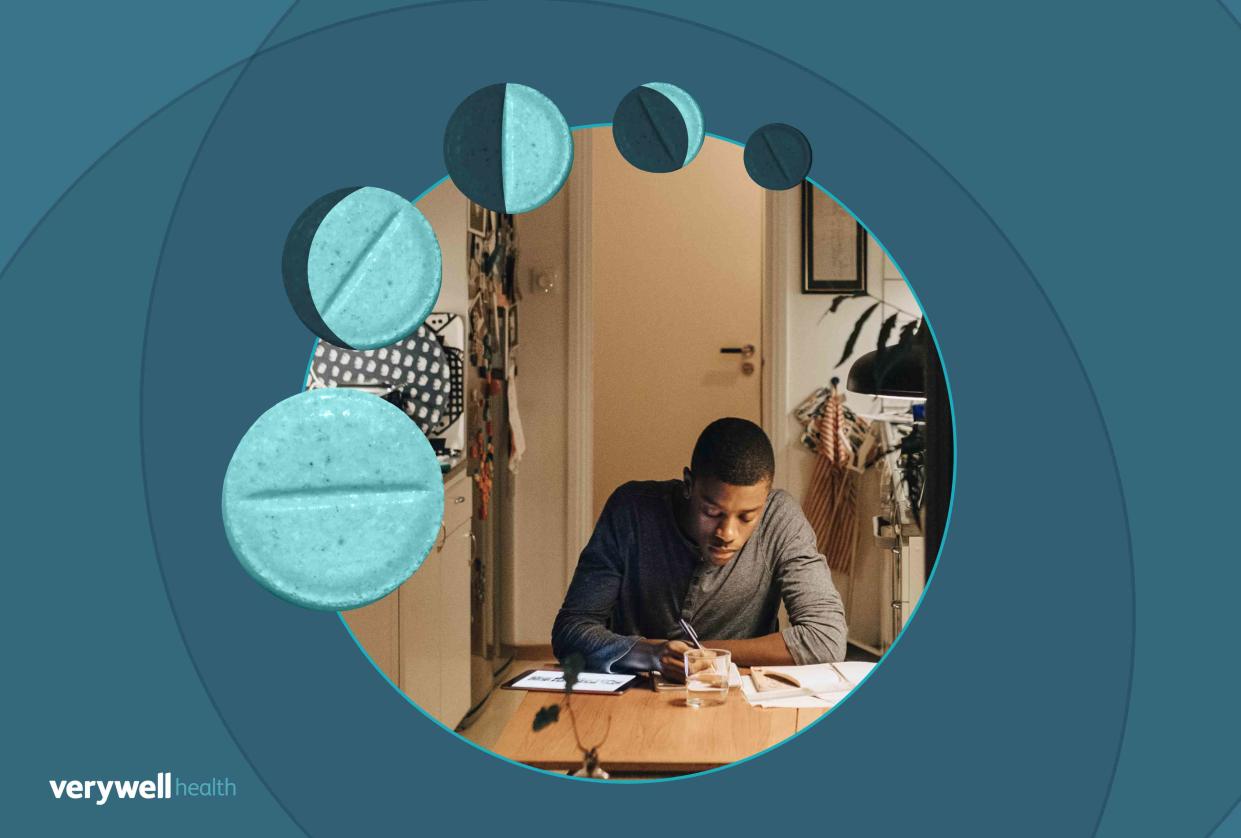Does Adderall Work If You Don't Have ADHD?

Photo Illustration by Amelia Manley for Verywell Health; Getty Images
Fact checked by Nick Blackmer
Key Takeaways
A study finds that contrary to popular belief, prescription stimulants like Adderall and Ritalin may not improve cognitive performance in people without ADHD.
Adderall and Ritalin work by increasing the levels of dopamine and norepinephrine in the brain, which help people with ADHD stay on task.
Short-term, unprescribed use of ADHD drugs can lead to obsessive thoughts, poor sleep, a suppressed appetite, an accelerated heart rate, and increased blood pressure.
College students or workers who need to pull an all-nighter might take ADHD medications like Adderall and Ritalin, assuming these “smart drugs” could help improve their cognitive performance.
In a survey conducted across various universities in Georgia, nearly half of the 219 students who reported using Adderall, Ritalin, or other undisclosed stimulants said they didn’t have prescriptions or ADHD diagnoses. The top three reasons for stimulant use among these students were to be more productive, concentrate better, and feel more focused.
However, these prescription stimulants don’t actually make people smarter.
A study published last year shows that while people may work harder on a task when using these drugs, they aren’t necessarily working more efficiently or being more productive.
In the study, people without ADHD were either given Ritalin (methylphenidate), dextroamphetamine (a component in Adderall), Provigil (modafinil), or a placebo pill at the start of each session. They were asked to complete a series of complex tasks.
“Overall, people took much longer to try to solve the tasks, spent more time [on the tasks], and tried more combinations before they submitted their answer,” said Elizabeth Bowman, PhD, a neuroscientist and lead author of the study.
“Is this extra effort paying off? It really wasn’t,” Bowman added.
Related: Does Adderall Cause Irritability and Anger?
How Do Adderall and Ritalin Help People with ADHD?
Adderall and Ritalin are both stimulants that are commonly prescribed to treat ADHD. They work by increasing dopamine and norepinephrine—two neurotransmitters that are known to affect a person’s motivation and focus.
People with ADHD have lower levels of these neurotransmitters than someone without, which is why they may have a harder time starting a task and remaining focused throughout it.
“There’s a ‘happy window’ for these chemicals,” said Ryan Sultan, MD, an assistant professor of clinical psychiatry at Columbia University.
Having too much dopamine or norepinephrine is associated with anxiety, insomnia, and aggression, while having too little may lead to brain fog, fatigue, and lack of motivation. When people with ADHD take Ritalin or Adderall, the drugs help balance the natural deficiency of these brain chemicals.
While short-term use of these drugs may increase heart rate and blood pressure, disrupt sleep, or suppress appetite, a healthcare provider can evaluate the risk profile of a patient. The benefits generally outweigh the risks for people with ADHD.
“These drugs are tremendously effective for people with ADHD. Over 90% of symptoms can be treated, making it one of the more effective forms of treatment,” Sultan said.
People with ADHD who are on regular medications don’t usually take the drug late in the evening because it may affect their sleep. They may also skip or lower caffeine consumption because it contributes to accelerated heart rate. Physicians also recommend eating between doses, when the medication has worn off and their appetite returns.
However, those who take Adderall and Ritalin unprescribed may be unaware of the health risks or mix it with alcohol and other substances, Sultan said.
Related: How Caffeine Affects ADHD
What Happens If Someone Without ADHD Takes Adderall?
People without ADHD are typically within the “happy window” of dopamine and norepinephrine already. When someone without ADHD takes Adderall or Ritalin, they’re flooding their brains with these chemicals.
“When they’re going past that happy window, they can experience things like obsessive thoughts,” Sultan said. This was reflected in the study’s results as many participants worked harder on their tasks because they tried more combinations, but didn’t improve their results.
“You might be introducing trade-offs that you’re not prepared for because you’re just dumping more dopamine neurotransmitters into your brain,” Bowman added. “It’s like putting more and more petrol into your car and expecting it to go faster. It doesn’t work like that.”
It may be misleading to call ADHD medications “smart” drugs. If you need help focusing on a task, Sultan instead recommends “setting yourself up to win,” and “filling your bucket.” For example, try working in an environment away from your bedroom, and remember to have proper meals and enough sleep so your body can function efficiently.
Read Next: What Is Adderall Addiction?
What This Means For You
If you don't have ADHD, taking prescription stimulants like Adderall or Ritalin likely won't make you more productive or efficient.
Read the original article on Verywell Health.

